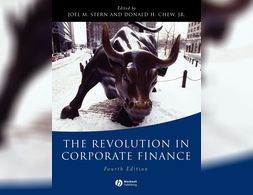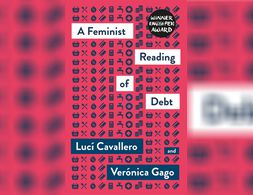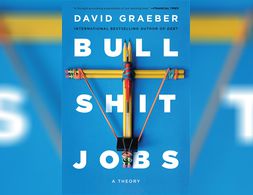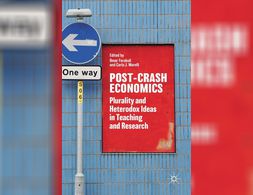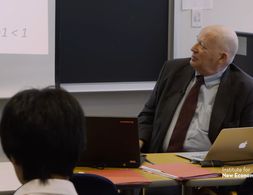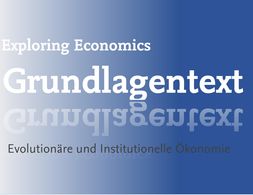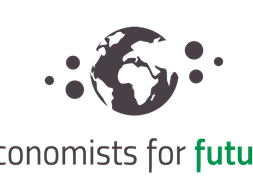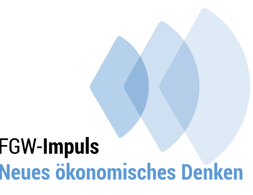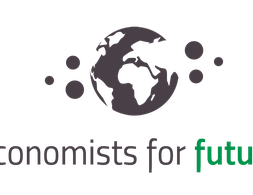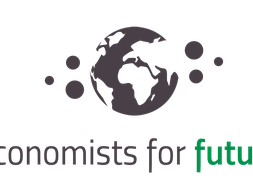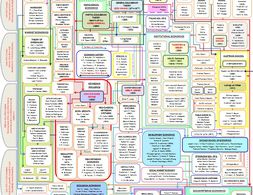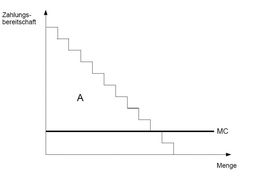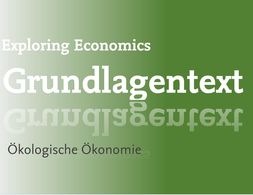631 Ergebnisse
This Encyclopedia is a very first fully refereed A-Z compendium of the main principles, concepts, problems, institutions, schools and policies associated with political economy. Part 1 of a 2-volume set comprises entries from A-K.
The Revolution in Corporate Finance has established itself as a key text for students of corporate finance with wide use on a range of courses. Using seminal articles from the highly regarded Bank of America Journal of Applied Corporate Finance, it gives students real insight into the practical implications of the most recent theoretical advances in the field.
Despite the Doha declaration of November 2001, the failure to start a new round of global trade negotiations at Seattle in December 1999 and the hostility of protesters to the trade liberalization process and growing global economic and social disparities was a wake-up call for the World Trade Organisation (WTO).
One of the most authoritative authors on the intellectual heritage of John Maynard Keynes, Robert Skidelsky draws a sketch of the great man's economic thinking both accessible and insightful.
With a focus on Chile, Pinochet’s Economic Accomplices: An Unequal Country byForce uses theoretical arguments and empirical studies to argue that focusing onthe behavior of economic actors of the dictatorship is crucial to achieve basic objectivesin terms of justice, memory, reparation, and non-repetition measures.
In this sharp intervention, authors Lucí Cavallero and Verónica Gago defiantly develop a feminist understanding of debt, showing its impact on women and members of the LGBTQ+ community and examining the relationship between debt and social reproduction.
In this book, the author, Intan Suwandi, engages with the question of imperialism through the specific channel of Global Value Chains.
A Theory From bestselling writer David Graeber a master of opening up thought and stimulating debate Slate a powerful argument against the rise of meaningless unfulfilling jobs and their consequences Does your job make a meaningful contribution to the world In the spring of 2013 David Graeber asked this question …
As the world's energy system faces a period of unprecedented change, a global struggle over who controls the sector--and for what purposes--is intensifying. The question of "green capitalism" is now unavoidable, for capitalist planners and anti-capitalist struggles alike.
This book demonstrates the continuing relevance of economics for understanding the world, through a restatement of the importance of plurality and heterodox ideas for teaching and research.
Money is the fantasy that makes the world go round. Where did it come from and what is its future? From the Bank of England to Bitcoin and the Bristol Pound, LSE sociologist Nigel Dodd explores.
What is economics? What can - and can't - it explain about the world? Why does it matter?
A comprehensive account of how government deficits and debt drive inflation
Source image New Economic Thinking Youtube channel Some years ago in the aftermath of the great financial crisis GFC of the first decade of the twentieth century Paul Krugman famously remarked that most macroeconomics of the last thirty years was spectacularly useless at best and positively harmful at worst It …
Die Notwendigkeit von Suffizienz als komplementärer Rahmen für Effizienz- und Konsistenzstrategien wird zunehmend anerkannt – die Rolle von Unternehmen in diesem Prozess jedoch meistens ausgeblendet.
Die Evolutionäre und Institutionelle Ökonomie ist ein ökonomisches Paradigma, in welchem sozialer und ökonomischer Wandel eine zentrale Bedeutung einnehmen. In dieser heterodoxen Rolle außerhalb des wirtschaftswissenschaftlichen Mainstreams sehen einige die Evolutionsökonomie als eine Teildisziplin der Wirtschaftswissenschaften, die sich mit dynamischen Aspekten wirtschaftlichen Austausches befasst; für andere stellt sie eine Revolution wirtschaftstheoretischen Denkens dar. (vgl. Berendt/Glückler: 13 f.) Die Institutionelle Ökonomie zeigt Erklärungsansätze für wirtschaftliche Prozesse auf und betont, dass diese nicht ausschließlich durch „individuelles Rationalverhalten“ geprägt werden. Die Notwendigkeit von Institutionen wird betont, da ein individuelles, rationales Verhalten zu einer negativen Beeinflussung der Gemeinschaft führen kann und somit die Lösung über Institutionen erfolgen muss. (vgl. Nee, 2005: 49 ff)
Das globale Wirtschaftssystem bringt durch die Übernutzung der globalen Ressourcen und die Verschmutzung der Umwelt lebenswichtige Funktionen des Erdsystems in Gefahr. Dieser Artikel diskutiert Vorschläge einer grünen Ökonomie zu Lösung dieser ökologischen Krise und erläutert verschiedene Aspekte einer Kritik daran.
Die Eleganz der modernen Klimaökonomik scheint für viele attraktiv. Wie sie nichtsdestotrotz die Realität verklärt, wichtige Machtfragen ignoriert und so unzulänglich für effektive Klimapolitik ist, zeigt dieser Beitrag von Philipp Censkowsky und Jorim Gerrard.
In this lecture Mirowski claims that a good critique of and alternative to neoclassical economics should focus on microeconomics. In addition, he claims that mainstream economics is not about a specific "human nature", instead the understanding of markets (partially based on Hayek) is of special importance. As an alternative Mirowski proposes institutionalist economics that builds upon how markets work nowadays (e.g. links to computer science).
Um den sozial-ökologischen Herausforderungen zu begegnen, ist die konsequente Wiedereinbettung ökonomischer Strukturen in soziale Kontexte notwendig. Sogenannte CSX-Unternehmensmodelle bergen das Potenzial, Versorgungssysteme gemeinschaftsgetragen zu inspirieren und zu gestalten.
How has financialisation changed saving What are its implications on a macro economic level and from a welfare state perspective Craig Berry I PEEL
This essay deals with the concepts of Sustainable Land Management (SLM) and Land Degradation Neutrality (LDN).
An essay of the writing workshop on Nigeria’s Readiness for and the Effect of the Fourth Industrial Revolution
This course will fundamentally ask whether we can, or even should use the word ‘decolonising’ in our pursuit of a better economics?
Manipulation liegt vor, wenn Beeinflussung verdeckt, zielgerichtet und absichtsvoll erfolgt. Wendet man Kenntnisse der Kognitionswissenschaften und der Beeinflussungsforschung auf ökonomische Standardlehrbücher an, wird deutlich, wie sehr diese Bücher die Schwächen der Studierenden im Hinblick auf ihre Fähigkeit zur kritischen Reflexion ausnutzen.
Weite Teile der vorherrschenden Ökonomik haben Bewegungen wie „Fridays for Futures“ oder „Extinction Rebellion“ kaum relevantes Wissen anzubieten. Dies liegt vor allem an einem ideologisch verengten Blick auf das, was als ökonomisch bezeichnet wird, sowie den daraus resultierenden Maßnahmen. Märkte gelten in der vorherrschenden VWL als Synonym für Ökonomie.
Exploring Economics, an open-source e-learning platform, giving you the opportunity to discover & study a variety of economic theories, topics, and methods.
Poster of the different schools of thought made by Sergio A. Berumen. From the Greeks to late 20th and beginning of the 21th century.
Preisdiskriminierung (auch Preisdifferenzierung) beschreibt das Anbieten homogener Produkte zu unterschiedlichen Preisen. Vorraussetzung ist das Vorhandensein eines unvollkommenen Marktes, meist ist diese Art der Preispolitik nur für Unternehmen mit Monopolstellung möglich.
Das Paradigma der ökologischen Ökonomie (Ecological Economics) stellt einen multidisziplinärern Ansatz dar, um ein ganzheitliches Bild der wachsenden ökologischen Probleme und ihrer Verflechtungen mit der Ökonomie zu erhalten. Sie beschäftigt sich mit Ressourcenknappheit, Umweltverschmutzung, Klimawandel, Nahrungsmittelknappheit oder sozialer Ungleichheit. Hierbei werden wissenschaftliche Disziplinen wie Ökologie, Ökonomie, Physik und zunehmend auch andere Sozial- und Geisteswissenschaften (z.B. Soziologie oder Philosophie) herangezogen, mit dem Ziel, im ökonomischen Denken auch ökologische, ethische, politische, institutionelle und soziale Faktoren zu berücksichtigen. In diesem Zusammenhang werden nichtzuletzt deshalb auch wesentliche Grundannahmen der orthodoxen Ökonomie sehr kritisch betrachtet (Constanza 1989, Ayres 2008, Spash 2010).
Economic theory must distinguish between publicly owned and privately owned property if it is to account for the effect of institutions on the behavior of individuals. Careful study of the theories of Marxists and the real-world experience in the Soviet economy offer important lessons and insight for economic modeling and the ongoing development of theory. In this course, Marxist/Leninist theory and Soviet reality will be studied with an open mind, and with the goal of taking lessons from the case study. To what extent was the Soviet economy an accurate expression of Marxist theory? If Marxism were tried somewhere else would the results be the same?
Immer wieder sind in den letzten Jahren die Folgen einseitiger Lobby- und Marktmacht deutlich geworden – und wie schwierig es ist, sie zu begrenzen.
Wir nutzen Cookies. Klicke auf "Akzeptieren" um uns dabei zu helfen, Exploring Economics immer besser zu machen!


